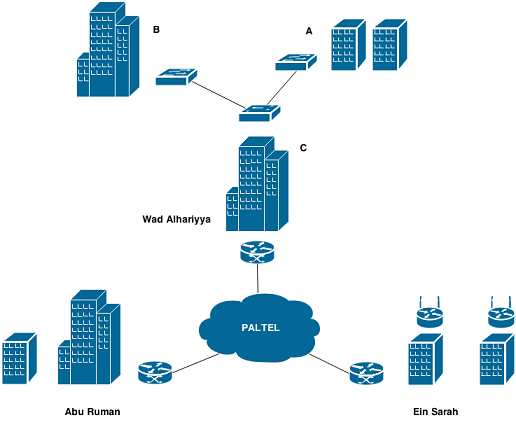This unit aims at providing a computer network infrastructure for all the University and its facilities and link it with the internet service and the internal systems of the University. It also aims to provide technical support to all the University colleges and departments, in addition to making future plans to expand and develop the network with the latest devices and different systems.
The main services provided by this unit:
Internet service: The University network is connected with the internet by two different sources in order to ensure access to the internet and electronic services provided by the university on a continuous basis. The University has been accredited as an internet service provider (ISP) to have a separate internet number (ASN) (IP Block) from RIPE which is responsible for these addresses in the Middle East, Europe and North Africa. The unit provides internet access to all the university employees and students through offices and laboratories located in each building or over the wireless LAN which covers all its facilities.
E-mail Service: This unit provides email and mailing lists to all the university employees and students with e-mail service and allows them to communicate inside and outside the university, using the university email page through the internet or any email program.
Web Hosting Service: The unit provides an integrated environment for hosting websites and applications on the internet, whether running on Linux or windows. It also provides a personal site for each teacher or employee to show off their profile or resumes, their researches and also to communicate with their students.
System Hosting Service: The unit provides virtual private servers (VPS) to host applications and information systems purchased or developed at the university as well as hosting the internal network systems and internet services while providing safe and secure operation.
The University Internal Network
The computer network at the University is distributed on three sites in the city of Hebron (Wadi Al-Harya, Abu Rumman, and Ein Sara) connected to each other by optical fiber cables through PALTEL. A server room was established in each site to manage the local area network (LAN) at that location and to secure permanent connection to other sites via the Virtual Private Network (VPN) with Internet access at each location.

